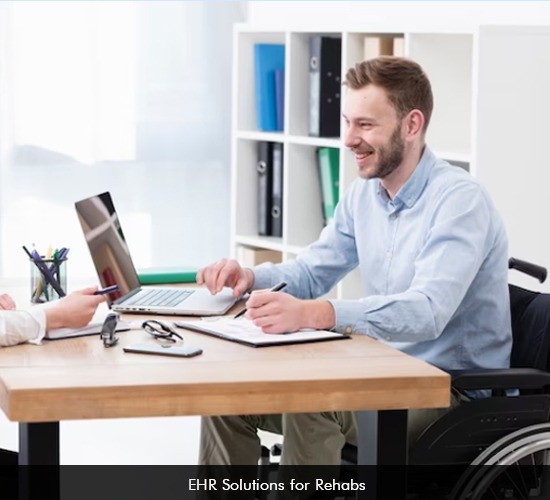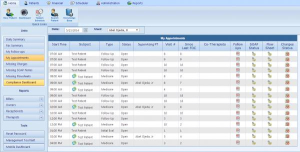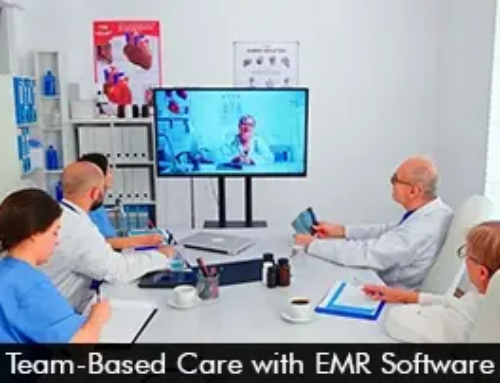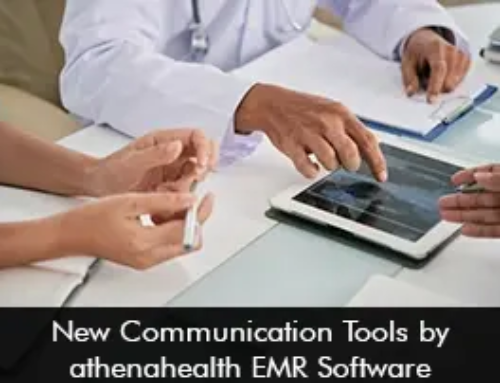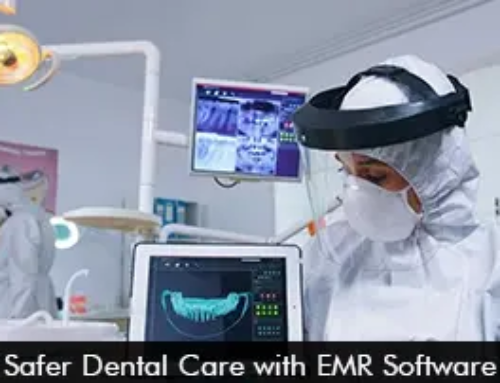Mental & Behavioral Health is a vast discipline that includes substance abuse and rehabilitation under its wide umbrella. EHR software assists providers in delivering care, managing patient information, and streamlining administrative tasks.
Create Comprehensive Patient Records With EHR Software
One of the primary advantages of electronic health records (EHR) software in rehab facilities is the creation of comprehensive and centralized patient records. These records encompass a patient’s medical history, assessments, treatment plans, progress notes, and more. Having all this information in one place ensures that healthcare providers can make informed decisions and deliver personalized care.
Streamlined Documentation
Rehabilitation care involves complex assessments, therapy sessions, and progress monitoring. EHR software streamlines the documentation process, allowing therapists to record patient data efficiently and accurately. This reduces the time spent on paperwork and frees up more time for direct patient care.
Customize Treatment Plans Through EHR Software
Rehabilitation EHR software enables therapists to create customized treatment plans tailored to each patient’s unique needs. These plans can include specific goals, exercises, and interventions. The ability to personalize treatment plans ensures that patients receive care that aligns with their individual rehabilitation goals.
Outcome Tracking
Tracking patient progress is essential in rehabilitation. EHR software includes tools for outcome tracking, allowing therapists to measure and document changes in a patient’s condition over time. Graphs and charts can visually represent progress, making it easier for therapists to adjust treatment plans as needed.
EHR Software and Telehealth Integration
Telehealth has become increasingly important, especially in light of the COVID-19 pandemic. Rehabilitation EHR software often integrates with telehealth platforms, enabling therapists to provide remote consultations and monitor patient’s progress from a distance. This integration expands access to care, particularly for patients who may have mobility challenges or live in remote areas.
Secure Communication
Effective communication among healthcare providers is crucial for coordinated patient care. EHR software facilitates secure communication between therapists, physicians, nurses, and other members of the healthcare team. This ensures that everyone involved in a patient’s rehabilitation is on the same page, leading to more effective and efficient care delivery.
Medication Management Through EHR Software
In some rehabilitation settings, medication management is an integral part of patient care. EHR software includes features for managing medication orders, documenting administration, and conducting drug interaction checks. This helps therapists ensure that patients receive the appropriate medications and dosages as part of their rehabilitation plan.
Billing and Insurance Management
Administrative tasks like billing and insurance management can be time-consuming for rehab facilities. EHR software often includes billing and coding features that help streamline the financial aspects of patient care. These features ensure that services are accurately documented and billed, reducing the risk of claim denials and revenue loss.
EHR Software Compliance and Reporting
Rehabilitation facilities must adhere to various regulatory requirements and quality standards. EHR software helps ensure compliance by providing templates and tools for documenting assessments, progress notes, and other essential information. It also generates reports that can be used for compliance audits and quality improvement initiatives.
Mobile Accessibility
The mobility of EHR software is a significant benefit for rehab professionals. With the availability of mobile apps and tablet compatibility, therapists can access patient records and input data from anywhere within the facility. This mobility enhances flexibility and allows therapists to provide more timely and efficient care.
Data Analytics and Research
EHR systems are rich sources of healthcare data, and rehabilitation EHRs are no exception. These systems store vast amounts of patient information that can be used for research and data analysis. Therapists and researchers can use this data to identify trends, assess treatment outcomes, and improve rehabilitation protocols.
Enhanced Security and Privacy
Protecting patient data is paramount in healthcare, and EHR includes robust security features to safeguard patient information. Access controls, encryption, and audit trails ensure that patient data remains confidential and is only accessible to authorized personnel. Compliance with regulations such as HIPAA (Health Insurance Portability and Accountability Act) is a top priority for EHR vendors.
Scalability and Customization
Rehabilitation facilities come in various sizes and specialties, and EHR software offers scalability and customization options to meet diverse needs. Facilities can adapt the software to their specific workflows, whether they specialize in physical therapy, occupational therapy, speech therapy, or a combination of these services. This flexibility ensures that EHR systems are adaptable to different rehabilitation practice settings.


